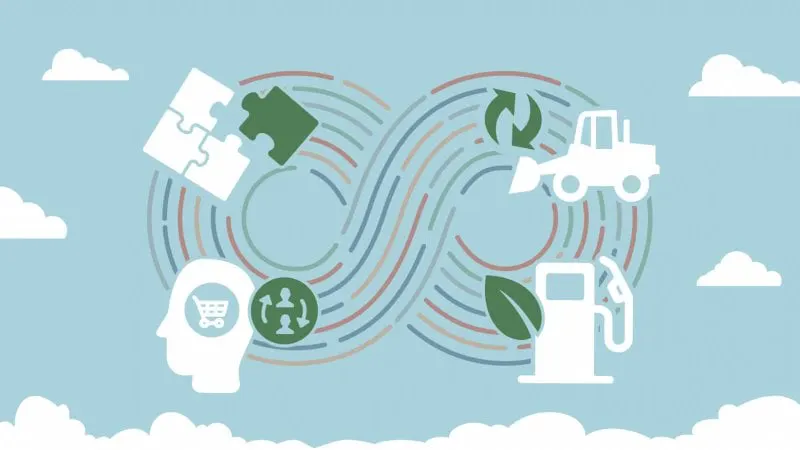‘Circular economy’: Turning waste into reusable products makes food and energy production more sustainable
‘Circular economy’: Turning waste into reusable products makes food and energy production more sustainable


We need to find a way to reduce waste, and the answer could be moving to a circular economy, which seeks to design out wastage by making use of byproducts and reusing materials. “The circular economy is an excellent way to deal with many of the major crises that we are facing,” says Anne Velenturf, a circular economy researcher at the University of Leeds. “Producing stuff takes a lot of energy, and if we make better use of our products then we also save much of the carbon embodied in them.”
Half of the world’s insulin comes from this factory in Kalundborg, Denmark, and its production relies on vast fermentation tanks full of yeast broth. Manufacturer Novo Nordisk passes its spent yeast slurry to Kalundborg Bioenergi to make biogas. “Any leftovers, you can put on the fields as fertilizer,” says Kalundborg Bioenergi CEO Erik Lundsgaard.
AeroFarms grows kale and lettuce in stacks in an old steel mill warehouse in Newark, New Jersey, planting seeds into cloth made from recycled plastic bottles and misting seedlings from the bottom up to save 95 per cent of water over field farming. Precision LED lighting uses only spectra relevant to plants to avoid wasting energy. But smart farming can only go so far: we bin a third of the food that we produce, some 1.3 billion tons a year, according to the UN. “Reducing production and consumption can limit the damage done to the environment,” says Velenturf.
Read the original post

 | Videos | More... |

Video: Nuclear energy will destroy us? Global warming is an existential threat? Chemicals are massacring bees? Donate to the Green Industrial Complex!
 | Bees & Pollinators | More... |

GLP podcast: Science journalism is a mess. Here’s how to fix it

Mosquito massacre: Can we safely tackle malaria with a CRISPR gene drive?

Are we facing an ‘Insect Apocalypse’ caused by ‘intensive, industrial’ farming and agricultural chemicals? The media say yes; Science says ‘no’
 | Infographics | More... |

Infographic: Global regulatory and health research agencies on whether glyphosate causes cancer
 | GMO FAQs | More... |

Why is there controversy over GMO foods but not GMO drugs?

How are GMOs labeled around the world?

How does genetic engineering differ from conventional breeding?
 | GLP Profiles | More... |

Alex Jones: Right-wing conspiracy theorist stokes fear of GMOs, pesticides to sell ‘health supplements’




 Trust issues: What happens when therapists use ChatGPT?
Trust issues: What happens when therapists use ChatGPT? Fighting deforestation with CO2: Biotechnology breakthrough creates sustainable palm oil alternative for cosmetics
Fighting deforestation with CO2: Biotechnology breakthrough creates sustainable palm oil alternative for cosmetics California, Washington, Oregon forge immunization alliance to safeguard vaccine access against federal undermining
California, Washington, Oregon forge immunization alliance to safeguard vaccine access against federal undermining Viewpoint — Fact checking MAHA mythmakers: How wellness influencers and RFK, Jr. undermine American science and health
Viewpoint — Fact checking MAHA mythmakers: How wellness influencers and RFK, Jr. undermine American science and health 30-year-old tomato line shows genetic resistance to devastating virus
30-year-old tomato line shows genetic resistance to devastating virus Viewpoint: Video — Big Solar is gobbling up productive agricultural land and hurting farmers yet providing little energy or sustainabilty gains
Viewpoint: Video — Big Solar is gobbling up productive agricultural land and hurting farmers yet providing little energy or sustainabilty gains The free-range chicken dilemma: Better for birds, but with substantial costs
The free-range chicken dilemma: Better for birds, but with substantial costs ‘You have to treat the brain first’:Rethinking chronic pain with Sanjay Gupta
‘You have to treat the brain first’:Rethinking chronic pain with Sanjay Gupta
